by Henry A. Giroux
Donald Trump’s election has sparked a heated debate about the past, particularly over whether the Trump administration represents a continuum, if not an echo, of the protean origins of fascism. This is an argument that combines the resources of historical memory with current analyses of the distinctive temper of a new and dangerous historical moment in the United States. For instance, an increasing number of pundits across the ideological spectrum have identified Trump as a fascist or neo-fascist, while resurrecting some of the key messages of an earlier period of fascist politics. On the left/liberal side of politics, this includes writers, such as Chris Hedges, Robert Reich, Cornel West, Drucilla Cornell, Peter Dreier and John Bellamy Foster. Similar arguments have been made on the conservative side by writers, such as Robert Kagan, Jeet Heer, Meg Whitman and Charles Sykes.
Historians of fascism, such as Timothy Snyder and Robert O. Paxton have argued that Trump is not Hitler but that there are sufficient similarities between them to warrant some concerns about surviving elements of a totalitarian past crystalizing into new forms in the United States. Paxton, in particular, argues that the Trump regime is closer to a plutocracy than to fascism. But, I think Paxton overplays the differences between fascism and Trump’s style of authoritarianism, particularly underemphasizing Trump’s ultra-nationalism, militarism and his embrace of the neoliberal state which does not suggest the rule of free-market capitalism but a more extreme example of the corporate state or what Mussolini called the corporatist state. In this case, traditional state power has been replaced by the rule of major corporations and the financial elite. At the same time, the social cleansing and state violence inherent in totalitarianism has been amplified under Trump. Both Hannah Arendt and Sheldon Wolin, the great historians of totalitarianism, have argued that the conditions that produce authoritarian logics have persisted well after their mid-twentieth century expressions. Wolin, in particular, insisted in 2010 that the United States was evolving into an authoritarian society.
Recently, though, numerous critics have denied the persistence of fascism and totalitarianism. They have argued that Trump is either a sham, right-wing populist, or simply a reactionary Republican. Three notable examples of the latter positions can be found in the work of cultural critic Neal Gabler, who argues that Trump is mostly a self-promoting con artist and pretender president whose greatest crime is to elevate pretense, self-promotion and appearance over substance, all of which proves that he lacks the capacity and will to govern. Andrew O’Hehir claims we have to choose between whether Trump is just a clown or a fascist dictator and in the end seems to pivot more toward the clown argument, though he admits Trump is nonetheless dangerous. A more sophisticated version of this argument can be found in the work of historian Victoria de Grazia, who has argued that Trump bears little direct resemblance to either Hitler or Mussolini and is just a reactionary conservative.
Certainly, Trump is not Hitler, and the United States at the current historical moment is not the Weimar Republic. But it would be irresponsible to consider Trump to be a either a clown or aberration given his hold on power and the ideologues who support him. What appears indisputable is that Trump’s election is part of a sustained effort over the last 40 years on the part of the financial elite to undermine the democratic ethos and highjack the institutions that support it. Consequently, in the midst of the rising tyranny of totalitarian politics, democracy is on life support and its fate appears more uncertain than ever. Such an acknowledgment should make clear that the curse of totalitarianism is not a historical relic and that it is crucial that we learn something about the current political moment by examining how the spread of authoritarianism has become the crisis of our times, albeit in a form suited to the American context.
History, once again, offers us a framework in which a global constellation of authoritarian economic, social and political forces are coming together that speak to tensions and contradictions animating everyday lives that transcend national boundaries for which there is not yet a comprehensive, coherent and critical language. What has emerged is a climate of precarity, fear, angst, paranoia and incendiary passion. Drawing upon Hannah Arendt, it would be wise to resurrect one of the key questions that emerges from her work on totalitarianism, which is whether the events of our time are leading to totalitarian rule.
Whether or not Trump is a fascist in the exact manner of earlier totalitarian leaders somewhat misses the point, because it suggests that fascism is a historically fixed doctrine rather than an ideology that mutates and expresses itself in different forms around a number of commonalities. There is no exact blueprint for fascism, though echoes of its past haunt contemporary politics. As Adam Gopnik observes:
… to call [Trump] a fascist of some variety is simply to use a historical label that fits. The arguments about whether he meets every point in some static fascism matrix show a misunderstanding of what that ideology involves. It is the essence of fascism to have no single fixed form — an attenuated form of nationalism in its basic nature, it naturally takes on the colors and practices of each nation it infects. In Italy, it is bombastic and neoclassical in form; in Spain, Catholic and religious; in Germany, violent and romantic. It took forms still crazier and more feverishly sinister, if one can imagine, in Romania, whereas under Oswald Mosley, in England, its manner was predictably paternalistic and aristocratic. It is no surprise that the American face of fascism would take on the forms of celebrity television and the casino greeter’s come-on, since that is as much our symbolic scene as nostalgic re-creations of Roman splendors once were Italy’s.
The undeniable truth is that Trump is the product of an authoritarian movement and ideology with fascist overtones. In responding to the question of whether or not he believes Trump is a fascist, historian Timothy Snyder makes clear that the real issue is not whether Trump is a literal model of other fascist leaders but whether his approach to governing and the new political order he is producing are fascistic. He writes:
I don’t want to dodge your question about whether Trump is a fascist or not. As I see it, there are certainly elements of his approach which are fascistic. The straight-on confrontation with the truth is at the center of the fascist worldview. The attempt to undo the Enlightenment as a way to undo institutions, that is fascism. Whether he realizes it or not is a different question, but that’s what fascists did. They said, ‘Don’t worry about the facts, don’t worry about logic, think instead in terms of mystical unities and direct connections between the mystical leader and the people.’ That’s fascism. Whether we see it or not, whether we like it or not, whether we forget, that is fascism. Another thing that’s clearly fascist about Trump were the rallies. The way that he used the language, the blunt repetitions, the naming of the enemies, the physical removal of opponents from rallies, that was really, without exaggeration, just like the 1920s and the 1930s. And Mr. [Steve] Bannon’s preoccupation with the 1930s and his kind of wishful reclamation of Italian and other fascists speaks for itself.
To date, Trump’s ascendancy has been compared to the discrete emergence of deeply reactionary nationalisms in Italy, Germany, France and elsewhere. I would like to broaden the lens with which we view these incipient events in ways that allow for a deeper historical understanding of the international scope and interplay of critical forces that respond to the shifts and contradictions brought about by a globalizing world increasingly brought to the brink of catastrophe by technological disruption, massive inequities in wealth and power, ecological disaster, mass migrations, relentless permanent warfare and the threat of a nuclear crisis. In the United States, shades of a growing authoritarianism are present in Trump’s eroding of civil liberties, the undermining of the separation of church and state, health care policies that reveal an egregious indifference to life and death, his manufactured spectacles of self-promotion, contempt for weakness and dissent, and his attempts to shape the political realm through a process of fear, if not tyranny itself, as Snyder insists in his book On Tyranny: Twenty Lessons from the Twentieth Century.
History contains dangerous memories and this is particularly true for Trump given the ideological features and legacies of fascism that are deeply woven into his rhetoric of hate and demonization, his mix of theater and violence, his frenzied defiance of basic laws and his policies supportive of ultra-nationalism and racial cleansing. All the more reason for Trump and his acolytes to treat historical memory as a dangerous ghost that harbors critical tools for understanding how the present has become the past and the past informs the future. Historical memory matters because it serves as a form of moral witnessing, and in doing so becomes a crucial asset in preventing new forms of fascism from becoming normalized. We cannot pretend as if the current conditions exist outside of history in some ethereal space in which everything is measured against the degree of distraction it promises.
Echoes of Trump’s fascist impulses have been well documented, but what has been overlooked is a sustained analysis of his abuse and disparagement of historical memory, particularly in light of his association with a range of current right-wing dictators and political demagogues across the globe. Trump’s ignorance of history was on full display with his misinformed comments about former president Andrew Jackson and nineteenth-century abolitionist Frederick Douglas. Trump’s comments about Jackson having strong views on the civil war were widely ridiculed, given that Jackson died 16 years before the war started. Trump was also criticized for comments he made during Black History Month when he spoke about Frederick Douglass as if he were still alive, though he died 120 years ago. For the mainstream press, these historical missteps largely reflect Trump’s ignorance of American history. But I think there is more at stake than simply ignorance, given the appeal of Trump’s comments to white nationalists.
Trump’s comments provide a window into his ongoing practice of stepping outside of history so as to deny its relevance for understanding both the economic and political forces that brought him to power and the historical lessons to be drawn, given his egregious embrace of a number of authoritarian elements that resemble the plague of a fascist past. His alleged ignorance is also a cover for enabling a post-truth culture in which dissent is reduced to «fake news,» the press is dismissed as the enemy of the people and a mode of totalitarian education is enabled whose purpose, as Hannah Arendt wrote in The Origins of Totalitarianism, is «not to instill convictions but to destroy the capacity to form any.» Trump may appear to be an ignoramus and a clown, but such behavior points to something more profound politically, such as an attack on any viable notion of thoughtfulness and moral agency. His forays into international politics offer another less remarked upon form of fascistic embrace.
There are important lessons to be mined historically regarding how we examine Donald Trump’s support from and for a number of ruthless dictators and political demagogues. Trump’s endorsements of and by a range of ruthless dictators are well-known and include Egyptian President Abdel-Fattah el-Sisi, Turkish President Recep Tayyip Erdoğan, Russian President Vladimir Putin and Philippine President Rodrigo Duterte and the [recently defeated] French presidential candidate Marine Le Pen, the leader of the National Front party. All of these politicians have been condemned by a number of human rights groups, including Human Rights Watch, Amnesty International and Freedom House. Less has been said about the support Trump has received from controversial right-wing bigots and politicians from around the world, such as Nigel Farage, the former leader of the right-wing UK Independence Party; Matteo Salvini, the right-wing Italian politician who heads the North League [Lega Nord]; Geert Wilders, the founder of the Dutch Party for Freedom; and Viktor Orbán, the reactionary prime minister of Hungary. All of these politicians share a mix of ultra-nationalism, xenophobia, Islamophobia, anti-Semitism, homophobia and transphobia. While the mainstream press and others have expressed moral outrage over these associations, they have refused to examine these relationships within a broader historical context. In an age when totalitarian ideas and tendencies inhabit the everyday experiences of millions of people and create a formative culture for promoting massive human suffering and misery, Trump’s affinity for indulging right-wing demagogues becomes an important signpost for recognizing the totalitarian nightmare that marks a terrifying glimpse of the future.
Historical memory suggests that a better template for understanding Trump’s embrace of rogue states, dictators and neo-fascist politicians can be found in the reprehensible history of collaboration between individuals and governments, and the fascist regimes of Italy and Germany before and during the Second World War. For instance, one of the darkest periods in French history took place under Marshall Philippe Petain, the head of the Vichy regime, who collaborated with the Nazi regime between 1940 and 1944.
As Helene Fouquet and Gregory Viscusi have noted, the Vichy regime was responsible for «about 76,000 Jews [being] deported from France, only 3,000 of whom returned from the concentration camps…. Twenty-six percent of France’s pre-war Jewish population died in the Holocaust.» For years, France refused to examine and condemn this shameful period in its history by claiming that the Vichy regime was an aberration, a position that has been recently taken up by Marine Le Pen, the neo-fascist National Front candidate. Not only has Le Pen denied the French government’s responsibility for the roundup of Jews sent to concentration camps between 1940 and 1944, she has also used a totalitarian script from the past in appealing to economic nationalism in order «to cover up her fascist principles.» During the election [campaign], as Angela Charlton has noted, [now President] Emmanuel Macron repeatedly «paid homage … to the tens of thousands of French Jews killed in the Holocaust, with a somber, simple message to voters: Never Again,» which served as a powerful reminder «of the anti-Semitic past of his rival Marine Le-Pen’s far-right National Front party.» Of course, such comments should not be read as an extraordinary political intervention for a mediocre neoliberal presidential candidate. These comments should be acknowledged by all candidates.
The deeply horrifying acts of collaboration with twentieth-century fascism were not limited to France and included collaborators in Belgium, Croatia, the IRA [in Ireland], Greece, Holland and other countries. At the same time that millions of people were being killed by the Nazis, many businesses collaborated with them in order to profit from the fascist machinery of death. Business that collaborated with the Nazis included Kodak, which used slave laborers in Germany. Hugo Boss, the clothing company, manufactured clothes for the Nazis. IBM created the punch cards and a sorting system used for identifying Jews and other marginalized people and sending them to the gas chambers. BMW and IG Farben used forced laborers in Germany along with Audi, the giant car company that «used thousands of forced laborers from the concentration camps … to work in their plant.»
The political and moral stain for collaboration with the Nazis was also at work in the United States and was evident in both FDR’s and the American business community’s initial supportive views of Mussolini. Moreover, as Noam Chomsky has pointed out, «In 1937 the State Department described Hitler as a kind of moderate who was holding off the dangerous forces of the left, meaning of the Bolsheviks, the labor movement … and of the right, namely the extremist Nazis. [They believed] Hitler was kind of in the middle and therefore we should kind of support him.» One telling incident of collaboration suggesting America’s deeply rooted affinity with fascist principles is visible in the America First movement of the 1930s. America First was the motto of Americans friendly to Nazi ideology and Hitler’s Germany. Its most famous spokespersons were Charles Lindbergh and William Randolph Hearst. The movement had a long history of anti-Semitism evident in Lindbergh’s claim that American Jews were pushing America into war. Historian Susan Dunn has argued that the phrase, America First, which was appropriated and used by Donald Trump before and after his election, is a «toxic phrase with a putrid history.»
The concept of collaboration functions historically to deepen our understanding of Trump’s associations with right-wing demagogues as a warning sign that offers up a glimpse of both the contemporary recurrence of fascist overtones from the past and what Richard Falk has called «a pre-fascist moment.» Trump’s endorsement of right-wing demagogues, such as Duterte, Le Pen and Erdoğan, in particular, is more than an aberration for a US president: It suggests more ominously his disregard for human rights, the suppression of dissent, human suffering and the principles of democracy itself. Trump’s collaboration with dictators and right-wing rogues also suggests something more ominous. As Michael Brenner observes, » … authoritarian movements and ideology with fascist overtones are back — in America and in Europe. Not just as a political expletive thrown at opponents, but as a doctrine, as a movement, and — above all — as a set of feelings.»
It is against this historical backdrop of collaboration that Trump’s association with various dictators should be analyzed. The case of Rodrigo Duterte is particularly telling. Warning signs of a «pre-fascist moment» abound in Trump’s invitation to Rodrigo Duterte to visit the White House. Duterte has supported and employed the use of death squads both as mayor of Davao and as the president of the Philippines. The New York Times has reported that «more than 7,000 suspected drug users and dealers, witnesses and bystanders — including children — have been killed by the police or vigilantes in the Philippines» under Duterte’s rule. Moreover, he has supported a nationwide killing machine that includes giving «free license to the police and vigilantes» to kill drug users and pushers while allowing children, innocent bystanders and others to be caught in the indiscriminate violence. He has called former president Obama «the son of a whore,» has compared himself to Hitler, has stated that Trump approves of his drug war, and has threatened to assassinate journalists. Duterte’s ruthlessness is captured by photographer, Daniel Berehulak, who while working in the Philippines stated that he had «worked in 60 countries, covered wars in Iraq and Afghanistan, and spent much of 2014 living inside West Africa’s Ebola zone, a place gripped by fear and death» but added that what he experienced in the Philippines «felt like a new level of ruthlessness: police officers’ summarily shooting anyone suspected of dealing or even using drugs, vigilantes’ taking seriously Mr. Duterte’s call to «slaughter them all.'»
Trump’s support for Duterte may arise out of his admiration for his law-and-order campaign, his hatred of the press, and his utter embrace of one-man rule. It may also have to do with Trump’s various business ventures in the Philippines, including ownership of a new «$150 million tower in Manila’s financial district.» All of these issues represent in more extreme form elements of Trump’s own anti-democratic policies and serve as a warning as to how far he might want to push them.
Trump’s affinity for what borders on collaboration with overt racists and authoritarians has played out within a global configuration of economic nationalism and right-wing politics among people, such as Le Pen, Erdoğan, Putin and el-Sisi who look to Trump for support and tacit approval.
Trump’s tacit support for Le Pen’s failed bid for the presidency of France rests on his sympathies with her anti-immigration policies, her ultra-nationalism and her claim to speak for the people. Like Le Pen, he deflects attention away from real problems, such as rising inequality, a carceral state, human rights violations, racial injustice and climate change, while demonizing and scapegoating marginalized people. Trump wants to join hands with those other right-wing leaders who want to build walls, beef up the security state and enable his white nationalist and white supremacist followers. His affinity for collaboration with Le Pen feeds his own narcissistic impulses, bigotry, hatred of Muslims and what Juan Cole calls «economic patriotism.»
At the same time, Trump’s disdain for human rights, the critical media and dissent has enamored him to Putin in Russia, Erdoğan in Turkey and el-Sisi in Egypt. These men are all ideological bedfellows of Trump who harbor a great deal of contempt for the rule of law, the courts and any other check on their power. Erdoğan, in particular, has not only imposed a state of emergency on his country and then later installed himself as a virtual dictator, but he has also purged and arrested dissidents in the critical media and in academia. After Erdoğan assumed dictatorial powers through what many believe was a rigged election, Trump congratulated him in a phone call. As Jennifer Williams and Zack Beauchamp have noted, el-Sisi, a brutal military dictator, «overthrew his country’s democratically elected president in a 2013 coup, killed more than 800 protesters in a single day, and has imprisoned tens of thousands of dissidents since he took power.» Williams and Beauchamp add that Trump’s response to his human rights violations and the turning of Egypt into a police state was to publicly announce that he was «very much behind President el-Sisi. He’s done a fantastic job in a difficult situation.» Trump has also offered to meet with Thailand prime minister, Prayuth Chan-ocha, a junta head who is responsible for jailing dissidents after he took power through a coup. He has also called one of the most brutal dictators in the world, North Korean leader Kim Jong-un, «a smart cookie.» Ironically, such praise comes at a time when Trump is threatening North Korea with a frightening and terrifying military confrontation.
In his endorsement, support and legitimation of a range of dictators and right-wing extremists, Trump has emulated a period in history of shameless complicity with the ideologies, policies and practices associated with fascism itself. Situating Trump within the historical legacy of collaboration with fascist states and leaders provides a new language for examining how far Trump might go in pushing authoritarian policies, and how historical memory can be used to prevent such practices from being normalized. Trump’s collaborationist endorsements offer insights into what the prelude to authoritarianism looks like in contemporary terms by enabling the public to understand how fascism can be normalized by escaping from history.
The politics of collaboration reminds us that the current crisis facing Americans is really about the crisis of memory, justice and democracy and not simply about Trump’s poor judgment or aberrant behavior. Historical memory, in this case, is a crucial referent for gaining insights into the violent forces and totalitarian forms emerging under the Trump regime. It also provides a referent for salvaging possibilities for individual and collective resistance against the evolving dynamics of an American-style fascism that poses a dire threat to democracy at home and abroad.
Source:
http://www.truth-out.org/news/item/40593-dancing-with-the-devil-trump-s-politics-of-fascist-collaboration
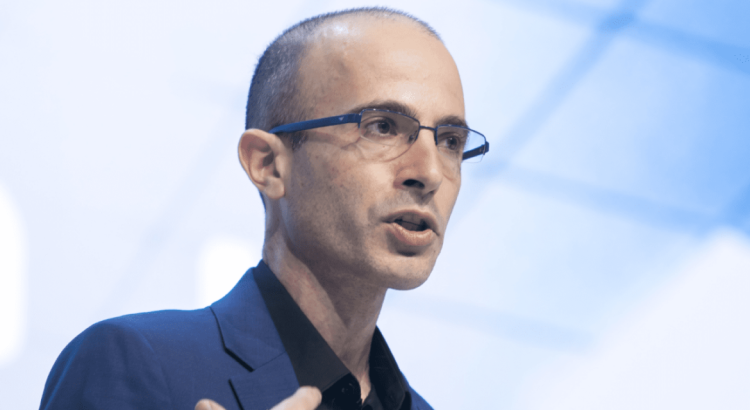
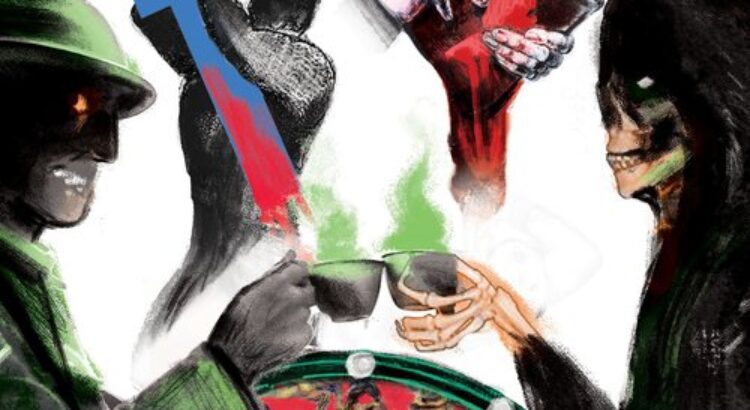

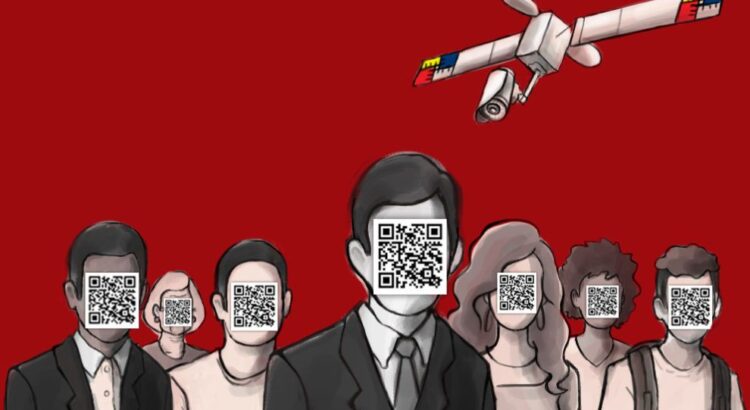
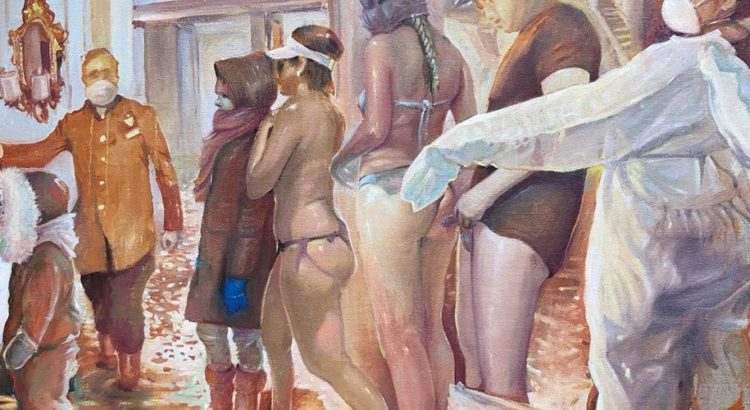
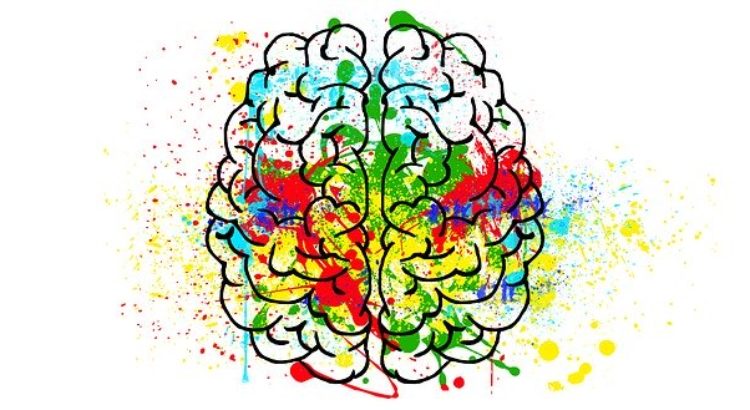
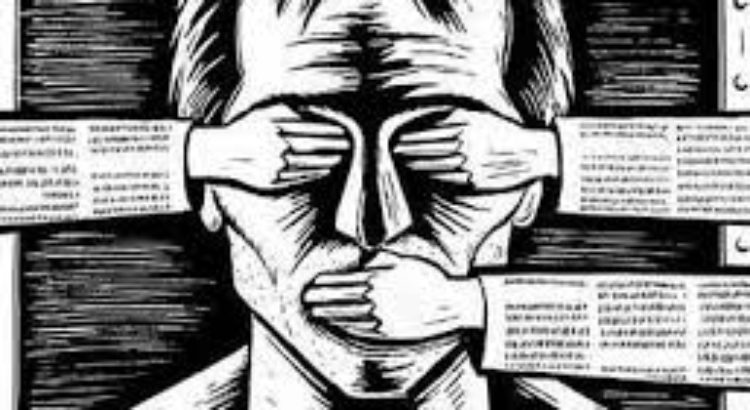
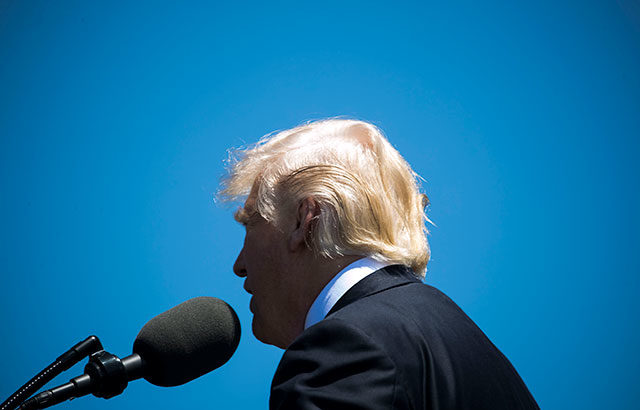






 Users Today : 94
Users Today : 94 Total Users : 35459560
Total Users : 35459560 Views Today : 149
Views Today : 149 Total views : 3417907
Total views : 3417907